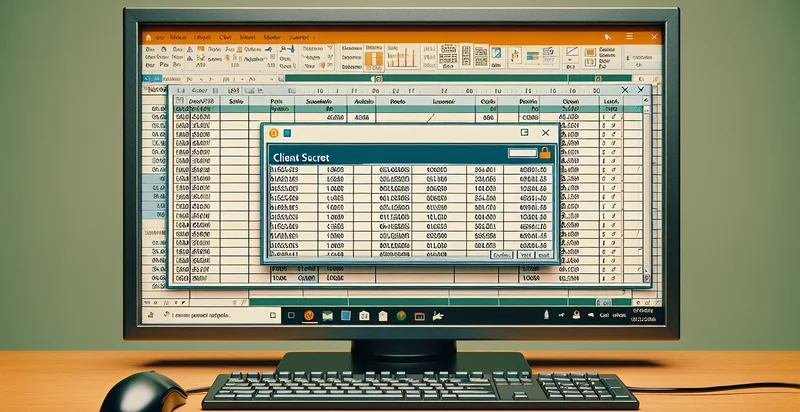Identify if client secret is in file properties
using AI
Below is a free classifier to identify if client secret is in file properties. Just input your text, and our AI will predict if the client secret is present - in just seconds.

Contact us for API access
Or, use Nyckel to build highly-accurate custom classifiers in just minutes. No PhD required.
Get started
import nyckel
credentials = nyckel.Credentials("YOUR_CLIENT_ID", "YOUR_CLIENT_SECRET")
nyckel.invoke("if-client-secret-is-in-file-properties", "your_text_here", credentials)
fetch('https://www.nyckel.com/v1/functions/if-client-secret-is-in-file-properties/invoke', {
method: 'POST',
headers: {
'Authorization': 'Bearer ' + 'YOUR_BEARER_TOKEN',
'Content-Type': 'application/json',
},
body: JSON.stringify(
{"data": "your_text_here"}
)
})
.then(response => response.json())
.then(data => console.log(data));
curl -X POST \
-H "Content-Type: application/json" \
-H "Authorization: Bearer YOUR_BEARER_TOKEN" \
-d '{"data": "your_text_here"}' \
https://www.nyckel.com/v1/functions/if-client-secret-is-in-file-properties/invoke
How this classifier works
To start, input the text that you'd like analyzed. Our AI tool will then predict if the client secret is present.
This pretrained text model uses a Nyckel-created dataset and has 2 labels, including Contains Client Secret and Does Not Contain Client Secret.
We'll also show a confidence score (the higher the number, the more confident the AI model is around if the client secret is present).
Whether you're just curious or building if client secret is in file properties detection into your application, we hope our classifier proves helpful.
Related Classifiers
Need to identify if client secret is in file properties at scale?
Get API or Zapier access to this classifier for free. It's perfect for:
- Data Security Compliance: This function can be utilized to ensure that files containing sensitive client secrets are properly flagged during audits. By identifying files with client secrets in their properties, organizations can take necessary measures to mitigate risks associated with unauthorized access or data breaches.
- Automated Risk Assessment: The identifier can be integrated into an automated system that scans various file repositories for sensitive information. By regularly assessing files for client secrets, organizations can proactively manage risk and ensure compliance with data protection regulations.
- Incident Response Strategy: In the event of a data breach, quickly identifying files containing client secrets gives incident response teams the information they need to contain the situation. This function aids in pinpointing exactly which files need immediate attention to minimize impact.
- Access Control Management: Organizations can leverage this identifier to enhance their access control strategies. By tagging files that contain client secrets, tighter restrictions can be placed on who has access to these files, thereby protecting sensitive data from unauthorized personnel.
- Data Loss Prevention (DLP): This function can be part of a DLP strategy that seeks to prevent sensitive client information from being mishandled or leaked. By identifying files with client secrets, organizations can implement appropriate controls to prevent unintentional exposure.
- Workflow Integration for Data Handling: Businesses can integrate this identifier into workflows surrounding data handling and storage. When files containing client secrets are detected, automated alerts can trigger processes for additional review or secure handling, ensuring that sensitive information is treated appropriately.
- Employee Training and Awareness: By utilizing this identifier for regular compliance checks, companies can raise awareness around the handling of client secrets among employees. It can serve as a basis for training sessions focused on best practices for data management and highlight the importance of safeguarding sensitive client information.


